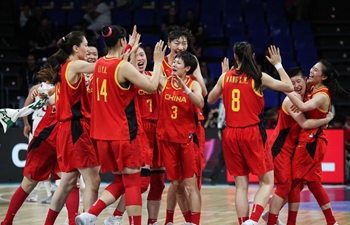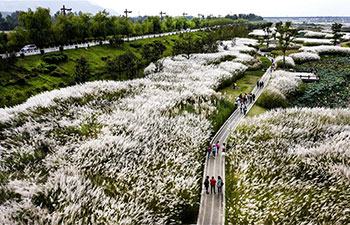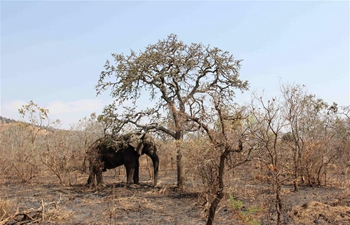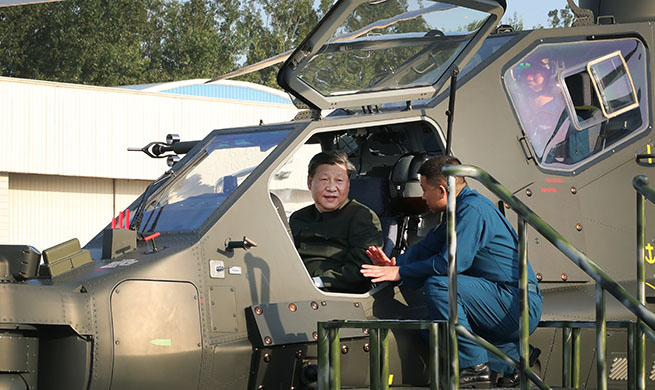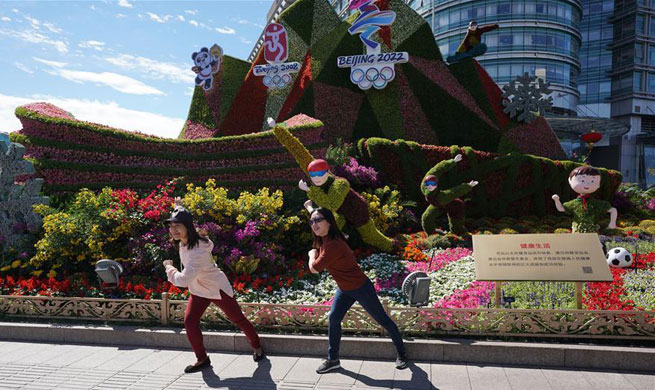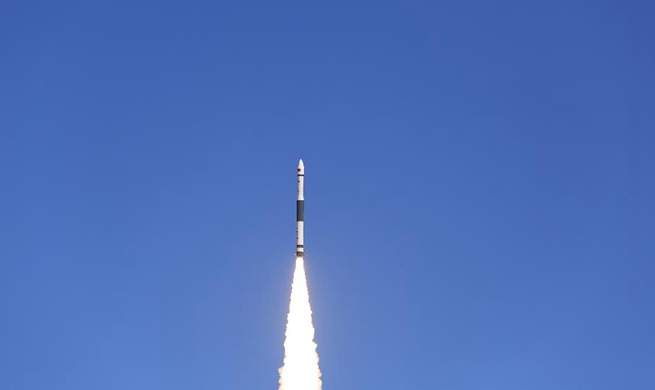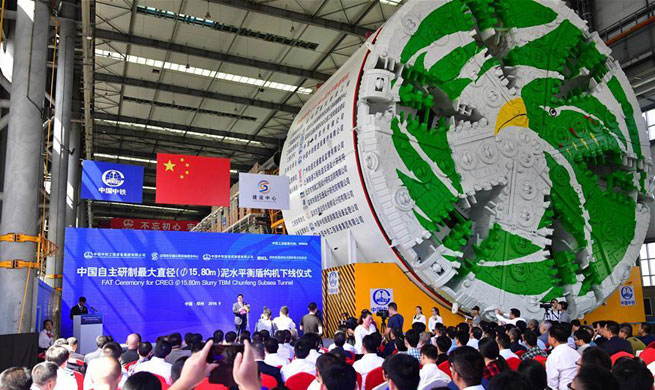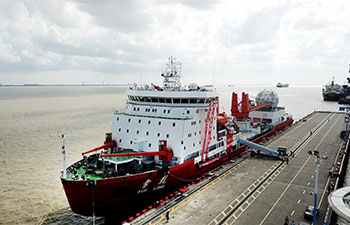by Xinhua writer Chen Jipeng
BEIJING, Sept. 29 (Xinhua) -- The global trading regime is in great need of change to avert real and potentially destabilizing losses resulting from the escalating trade frictions between the United States and China and elsewhere, experts said.
The Trump administration has leaned heavily towards unilateralism in addressing what it sees as unacceptable status quo in which the United States has long been taken advantage of by countries around the world, including its allies, in terms of trade and others, defense included.
Trump has fired the first shot in this global trade battle by failing to adequately negotiate. Furthermore, China is increasingly singled out as the source of the world's trade woes.
Caught in the cross fire, many U.S. soybean farmers are feeling uneasy about their coming harvest and have contemplated planting other crops for the next season, even though the Trump administration has said it will offer a package of 12 billion U.S. dollars to compensate for their losses.
"I do not want government compensation, I want the Chinese market," said Don Lutz, a farmer in Scandinavia in the state of Wisconsin.
In Brazil, the farmers there seem to have benefited from the U.S.-China trade friction, with the price of Brazilian soy beans rising by over 15 percent year on year on expectations of higher demand from China.
"In the past season 2017-2018, we extended the sowing for 4 percent more and we had a good income. For the new cycle, we tried to expand more, up to 7,100 hectares, and getting an increase of 4.4 percent," said Manoel Marques, 65, a farmer in the southern Brazilian state of Parana.
Nevertheless, experts said the picture is not as simple as it looks. While the Brazilian farmers are trying to fill the void left by the U.S. farmers on the back of tariff hikes, Marcos Jank, executive director of the Asia-Brazil Agro Alliance, said the trade frictions triggered by rising protectionism will distort the global supply chain and increase the uncertainty of the international market, potentially harming all.
Even in Brazil, not every sector is a winner.
"It seems that the oilseed sector will benefit, but the price increase will increase the cost of livestock and reduce of the competitiveness of Brazilian meat products in the international market," Jank said.
Trump has alleged that China is not fulfilling its promise on its accession to the World Trade Organization (WTO) and accused many countries around the world of "taking advantage of the United States." He recently further made clear his belief in unilateralism in handling international affairs, highlighted in a stunning address at the United Nations General Assembly.
Coupled with the rather diverse or even fragmented stances across the institutions in the United States that create the checks and balances and even within the Trump administration, the current approach of the Trump administration has left its trade partners grappling with the capriciousness.
"What we see is a juxtaposition of the political, the communication challenges and the differences on the economy and trade," said Zhang Kai, a professor of communication studies at Communication University of China.
The prevailing populism in the United States is making it difficult for public opinion not to be swept in a single direction, she added.
The Chinese government released a white paper earlier this week, presenting facts and figures in response to accusations levelled against the country by the United States. It voiced its willingness to negotiate but reaffirmed its resistance to the unilateral approach of the Trump administration. Experts voiced skepticism that Trump will change course but said the white paper will be helpful in presenting China's stance.
The trade frictions between the United States and other economies including the European Union and Canada has produced repercussions across the globe. In Singapore, an open economy susceptible to trade headwinds, leaders have voiced concerns that their businesses and the economy may be impacted.
The hiked American tariff "is not progress. It is not only against China, but also against many other countries, Europeans and emerging markets," Bernard Dewit, chairman of the Belgian-Chinese Economic and Commercial Council, said in a recent interview with Xinhua.
In an alarming sign, the WTO earlier this week cited the trade frictions as the main reason for downgrading its forecast for global trade growth this year by 0.5 percentage point to 3.9 percent.
The rise in "actual and proposed trade measures targeting a variety of exports from large economies" had triggered the downgrade, it said.
Even the WTO itself is at risk because of the unilateral approach of the Trump administration. Trump has slammed the institution as weak and threatened to dump it in favor of building a new system to its own design.
China has said that it supports efforts to reform the WTO but is against the idea of dropping the existing institution.
Dr. Deborah Elms, executive director of Asian Trade Center, a Singapore-based consultancy, said the WTO indeed needs updating urgently as trade has changed in unrecognizable ways since the diverse grouping last updated global trade rules in a huge way in 1995.
"Without creativity and flexibility by all members, the WTO is at risk of evaporating," she wrote in a trade blog. "The focus ought to be on updating the global rule book, rather than increasingly carving up and out smaller and smaller bits of the economy to be tailored for various member interests."
"We have forgotten how important the WTO has become to the business world," she said. "It operates like air. It is only when it is missing that it becomes obvious how much it was needed."
(Xinhua correspondents Tian Dongdong in Brussels, Su Liang and Chen Yao in Beijing, Chen Weihua and Zhao Yan in Rio de Janeiro, Peng Hua in Sao Paulo, Gao Shan in Los Angeles and Wang Ping in Chicago contributed to the report.)




